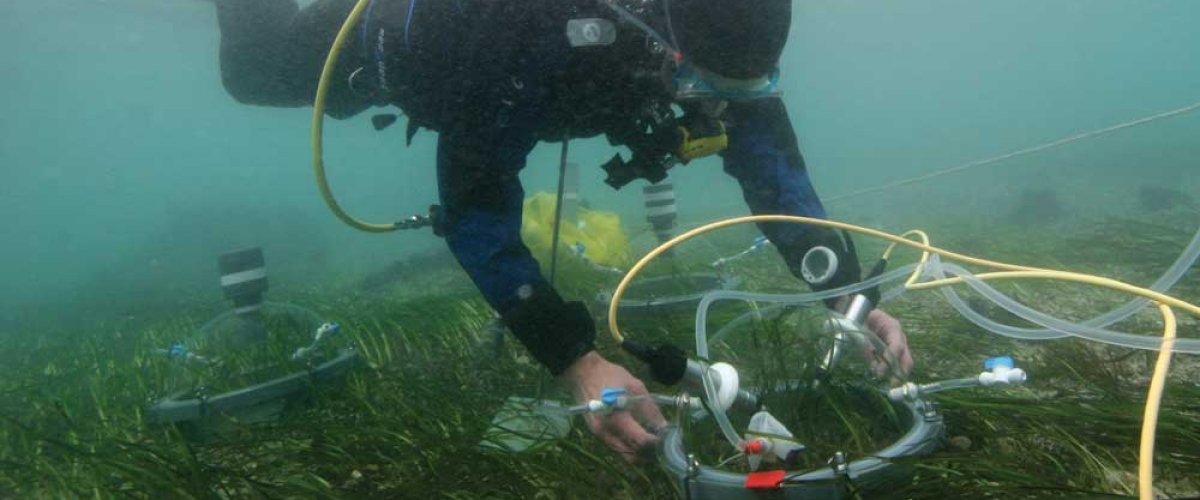


Research Topics
The EBEF research team investigates the functioning of coastal benthic ecosystems, particularly focusing on highly diverse communities dominated by macroalgae.
Different approaches are used within the team: in situ metabolism and food web measures as well as experimental approaches in the laboratory to measure the effects of global changes (warming and acidification) and eutrophication on the metabolism of benthic species.
The general objective is to study the functioning of coastal benthic ecosystems and their responses to environmental changes
The overall goal is to understand (how ?) and quantify (how much?) the functioning of the benthic communities. This requires to simultaneously develop biodiversity (habitat diversity, species diversity of macroalgae and macrofauna) and functioning (metabolism, food web) measures.
Studies are carried out both in a context of low human impact (reference/control area for methodological updates, estimates of primary production balance, understanding of the architecture of food webs and trophic connectivity between habitats) and under anthropogenic stresses conditions. Two types of anthropogenic stress are mainly studied:
- the impact of macroalgae harvesting (IDEALG project)
- the impact of climate change and eutrophication
- How are food webs structured? What are the key pathways?
- How is the metabolism of benthic communities regulated?
- How will species interactions evolve under anthropogenic stress?
- What are the production levels of communities dominated by macroalgae?
- Who produces and how much? Canopies, other strata of macroalgae or microalgae, macrofauna, meiofauna or microfauna? Is there any synergistic effect?
- What is the autotrophic/heterotrophic level (sink or source of CO2?) of coastal ecosystems?